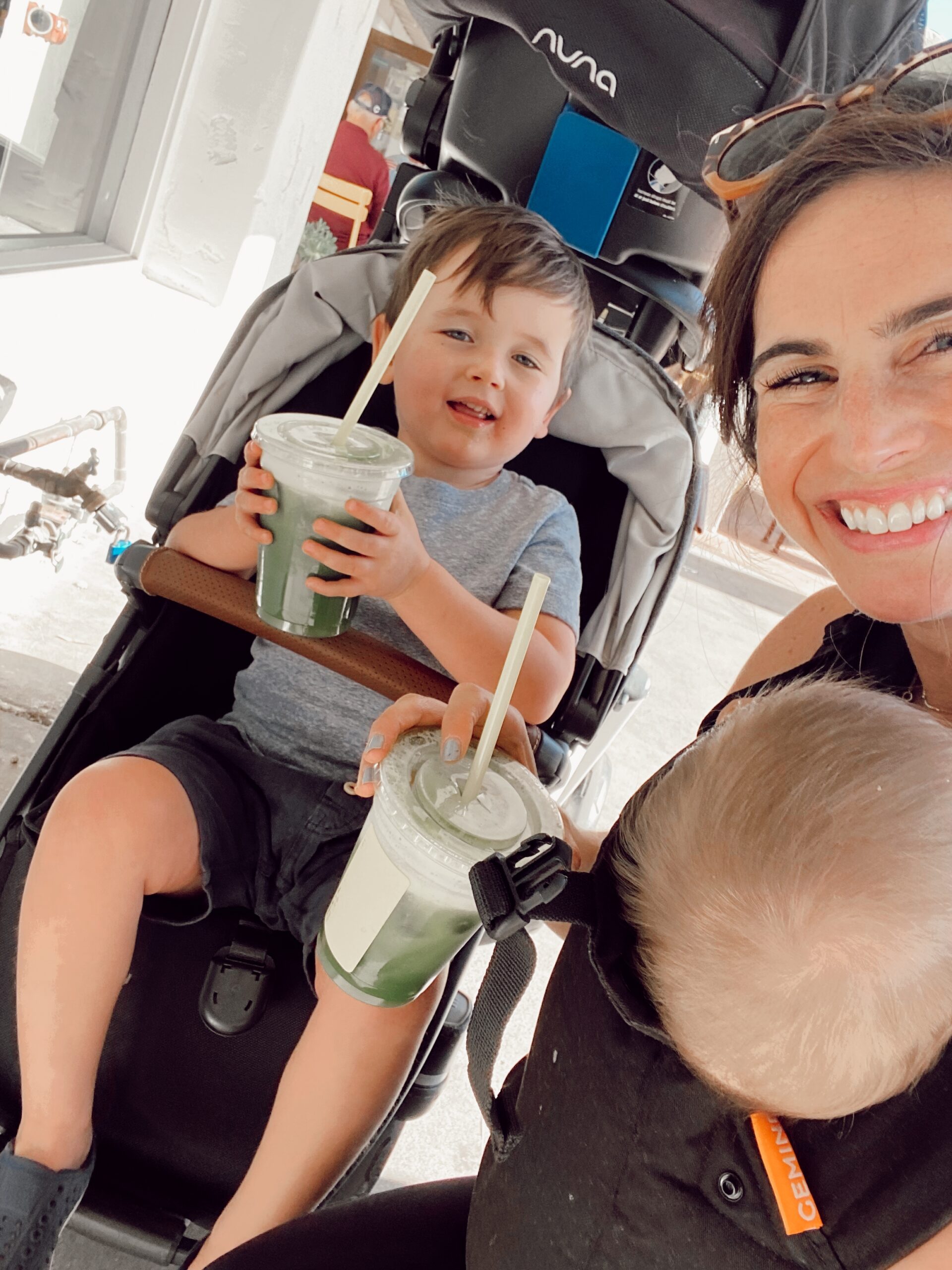3 Tips to Actually Avoid Picky Eaters in the First 18 Months (& Beyond)
[ad_1]

Let’s be honest, there’s a lot of pressure around feeding littles. The approach you use, the way they respond (or don’t) to what’s in front of them, all the food “rules” you might have grown up with, like finishing ALL of the food on the plate or taking “just 3 more bites of broccoli, please.”
I hear from a lot of mamas on this subject, because I have openly shared that I believe in a different approach. One that doesn’t add stress to mealtimes or put pressure on your little one to do or be or eat a certain way. And through my approach (one that is full of ease and a no-biggie attitude, and lots of intentional food choices), I’ve been able to raise one eater, now 3 years old, who loves his veggies, lives for a green smoothie and isn’t afraid to try new flavors or textures.
And now with the second go round, introducing my daughter to solids has brought back allllll the feelings from that first time. And reminded me how confusing it once was, but also how JOY-FILLED it can be, if we have a confident plan and approach.
The first 18 months of a child’s life is what I call the magic window— the precious time where your baby’s tastebuds are pure and unadulterated enough that all (or most) foods and flavors taste pretty good. It gives them a fair chance to try— and get used to— the whole spectrum of flavors: sour, savory and umami included, not just the sweet ones.
Also, from 6-18 months old, babies’ brain pathways are open enough to new ideas (they’re not in the toddler “NO” or “why” phase yet). They’re open to trying new things without much judgment, skepticism or fuss (or strong preferences). Aka, it’s a time to take FULL advantage of… at least if you want a well-rounded, non-picky eater as you head into toddlerhood.
#1: Fruit’s easy— try incorporating other flavors & foods first.
Look, no one’s going to argue the fact that fruit inevitably tastes better than vegetables. Hard fact. Even for us adults! (Most of us, at least.) But if the taste of vegetables (or more savory foods that most adults like, like olives, pickles, tuna, salmon, hummus, etc.) are not consistent or normal in your baby’s routine, only their sweet tastebuds get developed. Meaning that’s all they will want, and all they will eat.
Babies are creatures of habit and find so much comfort in routines, so using this fact to their advantage is helpful. The more “used” to seeing and eating vegetables they are, the more they will. This goes for what you eat around them too (wink wink).
#2: Know it takes time (& some planning).
It starts slow… like a slow creep in. They won’t love everything you put in front of them right away. And that’s okay. Some of us have issues deeply rooted in our childhoods about wasting food or not eating what’s served, and it might take healing and letting go of some of those things, and releasing the pressure YOU feel so that they don’t pick up on the energy.
Also, everything in our culture, like schools and daycares and even the foods marketed to us for kids, doesn’t exactly support this approach of well-rounded flavors and textures offered on your baby’s spoon and plate every day.
I do have to admit, it takes some work— some intention. Some planning ahead. Your baby won’t accidentally learn to like a variety of flavors and develop their non-sweet tastebuds if you don’t help them and provide those things for them as options. So yes it takes some extra time. But doesn’t everything take extra time with kids?! (Lol.)
You’ve gotta think ahead anyways, think about what you hope they’ll enjoy later in childhood (and life), and that they’ll be adventurous in their food choices… and not eating burgers or asking for 100 simplifications on menus for the rest of their lives. It’s about making sure you’ve got good stuff around to grab from the freezer, fridge or pantry or quickly warm up is key. Kinda like us adults have to do if we’re wanting to eat real food and make it a habit.
#3: Get ok with going against what’s “normal.”
Getting your baby to like real food means being ok with feeding them slightly differently than the “norm.” Like, this piece is HUGE. Think about it. If you followed along with what society taught you to eat….. Aka mostly not real food, you wouldn’t feel so great. It takes doing things differently than the norm to feel good in your life. Especially with food. Which is why I’m A-ok with feeding my babies and kids differently than everyone else.
Example: I pack blueberries for Noah, which he LOVES, on school days where there is a kid’s birthday at school (and store-bought treats are what the other kids are getting). Or I’ll pack him a healthy muffin or cookies I made over the weekend (or from the freezer) instead. He is 100% excited. Do I worry about him being different? No… (because worrying about that would really be a projection of ME).
Now, if he said something or noticed and really wanted the other dessert, I’d be open to him having something more similar. But I think because he’s eating stuff that’s our normal for a dessert (a frozen date, blueberries or a homemade treat are all his favs), he’s not even phased by it right now. He’s three. And maybe this will change (actually, I know it will). But to go three solid years without most added sugar and chemicals is pretty great, don’t you think!? Especially for the tastebud benefits, and having a strong foundation of eating lots of different kinds of real foods. I do think what you’re doing and feeding at home as their norm really adds up.
And teaching them it’s ok to be different. Explaining what food does for our bodies. And giving them choices and options always, so they’re in the drivers seat to some extent.
As with anything in parenting, the most important thing is doing what feels best for you, your kids and your own family. I’m not an expert by any means, I’m just sharing what has worked for us, with the unique way I think about food: not only in the moment, but the bigger role it always plays in our life.
I get asked all the time how I’ve been navigating the toddler years with food after seeing how I was feeding Noah as a baby (and why I wrote the Baby Food Files) so I hope this post was helpful in that way, because not having a picky toddler with food has been such a joy to eat with, travel with, and do life with. I hope it encourages you to hear of a different way to think about feeding your littles, so you can pick what feels best for YOU. That’s always the whole point of hearing other’s stories, right? 🙂
Happy eating, to all of you!
Ready for an easier, lower stress way to feed your baby real food?
[ad_2]
Source link








